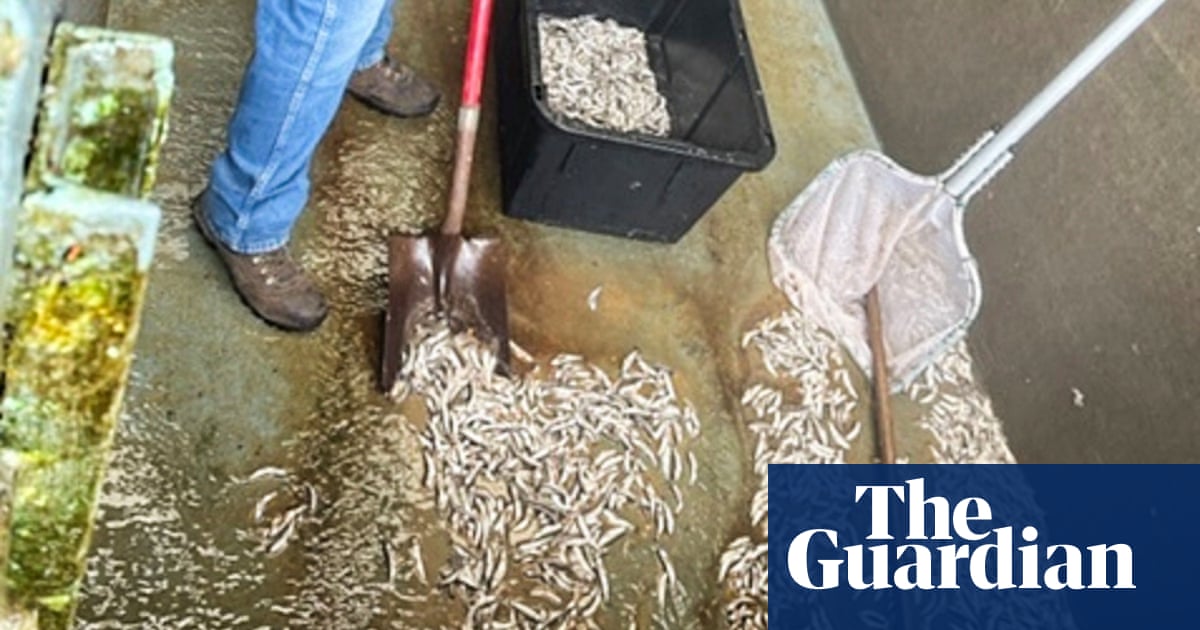Less beef, more leftovers: 21 food sustainability resolutions for 2024 | Food waste


1 Eat less beef
Nobody wants to be told what to eat when food connects us to culture, heritage, family and identity. But the numbers are hard to ignore: beef has a larger climate impact by far than any other commonly eaten food. If you’re not ready to swear off burgers or galbi entirely, start small by swapping one serving of beef each week with one serving of chicken – you’ll save 0.71 tons of CO2 a year per person.
2 Vote, especially in local elections
Individual changes in consumption are not going to be enough to fix our broken food system – it’ll take policy to do that. Whether you’re most concerned with food waste, subsidies for big ag, or farm worker protections, you’ll want representatives who will fight for your interests when the time comes to shape policy.
3 Switch your stove from gas to electric
Gas stoves are terrible for human health and leak planet-warming gases even when not in use. Switching them out isn’t possible for everyone and can be particularly tricky for renters, but regardless of your living situation, it’s worth using Rewiring America’s IRA calculator to see what kinds of rebates might be available to help you make the switch.
4 Host a kitchen gadget swap
Did you buy an immersion blender on sale three years ago only to realize you don’t like eating soup? Was your friend given a fancy juicer as a wedding gift that she’s never touched? Host a swap so you and your friends can give the gadgets gathering dust in your kitchen new life without spending a dime.
5 Store food properly so it doesn’t go to waste
About 40% of food waste in the US happens at home. Combat that by storing food the right way so it lasts longer. Start by placing fresh herbs stem-side down in a cup of water and separating apples from other fruit so the ethylene they release doesn’t make other produce go bad, then check out savethefood.com for other tips.
6 Get civically engaged
Even when it’s not election season, you can have an impact on sustainability decisions at a systemic level. Join your local solid waste advisory board to have a say in how your city manages food waste. Testify before city council about how making apartment buildings dependent on gas stoves harms residents. If you don’t know where to start, look for local organizations that are already taking action, and ask how you get involved.
7 Go dumpster diving
Follow the lead of “trashwalker” Anna Sacks and rifle through the garbage of your local Starbucks or Trader Joe’s, and you might just come home with hundreds of dollars of perfectly edible food that’s near but not past its expiration date. (Learn more about the legality and safety of dumpster diving for groceries here.) Even better, advocate for the corporate entity in question to stop tossing food, and start donating it to a local food bank instead.
8 Carry reusables with you
Recycling rates in the US are horrifyingly low, but most of our lives aren’t set up to be able to avoid buying fast food ever again. Reusable bottles and insulated coffee mugs are becoming an increasingly common part of life, but why not stash portable utensils and food containers in your bag, car or office desk for whenever you need them, too?
9 Set aside time to experiment with sustainable ingredients and recipes
It’s great to talk about how ingredients like kelp, amaranth or cricket powder could help make our diets less carbon-intensive. But we’re unlikely to start adopting more climate-resilient foods voluntarily unless we actually enjoy eating them – which means we need to learn to cook with them. Make time to experiment with and identify recipes that help you relish eating more planet-consciously.
10 Don’t waste your leftovers
Always ask for a box at the end of a dinner out and bring the leftovers home (even better, bring your own empty container with you). You can always transform your leftovers into something new – that day-old curry can become the filling for tomorrow’s fried egg rolls, for example. And if you get sick of eating the same thing repeatedly, try freezing a portion of what you make at home right away so you can pull it out and reheat it for a quick meal in a few weeks.
11 Continue your learning journey
It’s hard to do better if you don’t know better, so commit to staying informed. Read one book or watch one documentary this year that will teach you more about food systems, waste or climate change. (Need a place to start? Farming While Black by Leah Penniman and The One-Straw Revolution by Masanobu Fukuoka are on my list for 2024, and the film Gather is a favorite from previous years.)
The farm bill has been described as “the most important climate bill this Congress will pass” – it affects everything from land use to methane emissions to air and water pollution. Read up to learn more, then contact your reps to let them know what provisions you’d most like to see included in the bill.
13 Eat more plants (and fungi), and fewer animal products
Though beef is the worst climate offender (see No 1), other animal products, like cheese, take a toll on the climate, too. Every person’s nutritional needs are different, and you don’t have to suddenly go vegan overnight to have a positive impact – but you can start to incorporate more plant- and mushroom-forward dishes no matter where you are in your climate journey.
14 Volunteer
Find a local food pantry, urban farm or food sovereignty-focused organization and donate some of your time to feeding the hungry, pulling weeds or offering administrative assistance. Policy shifts are necessary for long-term systemic change, but in the meantime, there are people falling through the cracks of our current system who need help right away.
15 Start composting
Only 5% of the 66.2m tons of food waste we generate every year in the US gets composted, even though compost allows us to avoid the methane emissions that arise from sending food to landfill (plus, compost builds healthy soil). If you have the space and time, start your own compost system at home, or look into community compost drop-offs near you. If there’s nothing available, see if you can find a non-profit or citizens’ organization that’s advocating for increased composting options in your area.
16 Choose glass or aluminum over plastic
Only 5% of plastic in the US is recycled; the other 95% is either landfilled or incinerated. The recycling rates for aluminum and glass, though they could still use improvement, are much higher in the US – so if you’re faced with a choice, choose a beverage or food item in aluminum or glass over plastic, and then make sure to sort it into the proper recycling receptacle when you’re done.
17 Use your food scraps to make natural dyes
Did you know that you can use the scraps and peels lying around your kitchen for DIY natural dye projects? Breathe new life into old or thrifted clothes by using avocado pits, onion skins and pomegranate rinds to dye your garments a range of pinks, yellows and and rich browns.
18 Find out whether your local supermarket is using climate-friendly refrigerants
The hydrofluorocarbons (or HFCs) often used as coolants in refrigerators are “super polluters”, with thousands of times more global warming potential than carbon dioxide – even though HFC-free alternatives exist. Find out what your local supermarket uses and hold grocery stores accountable for more climate-friendly options using climatefriendlysupermarkets.org’s online tools.
19 Make a grocery list and stick to it
Grocery stores are designed to get you to buy more than you intended to – and when you do, that excess can easily turn into food waste. To minimize overbuying, make a meal plan and grocery list at home and stick to it once you’re in the store. And don’t go shopping on an empty stomach: hunger really can compel you to buy more.
20 Create pollinator habitat
According to the USDA, 35% of the world’s food crops depend on animal pollinators, but these creatures are under threat. Show them some love by limiting the use of pesticides in your garden, planting a diversity of native plants, or installing a bat box (believe it or not, bats are also essential, if misunderstood, pollinators).
21 When in doubt, think collectively, not individually
Even if you could vaporize your entire personal footprint tomorrow, the current food system would keep everyone else around you locked into an ecologically destructive status quo – which means that it’s more impactful to shift the systems that keep us locked in unsustainable cycles than to achieve personal moral purity. So if you have limited time or energy to spend on sustainability efforts, prioritize actions that produce collective rather than individual change whenever possible.
Source link




